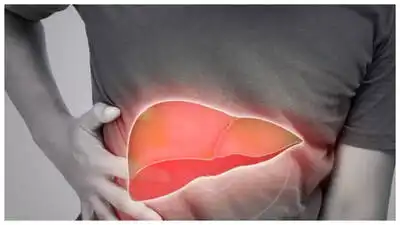Fatty liver disease is a condition where excess fat builds up in the liver. It can be caused by excessive alcohol (alcoholic fatty liver disease) or by other factors like obesity, type 2 diabetes, and metabolic syndrome (non-alcoholic fatty liver disease). Usually, the condition can remain undiagnosed for long. However, here are top 3 signs that you should watch out for, if you suspect you have fatty liver disease. (source: thestomachdoc)
Extreme fatigue
One of the most common symptoms of fatty liver disease is fatigue. And no, we are not talking about normal tiredness that goes away after rest or a good night’s sleep, but exhaustion that will not let one leave the bed. People with fatty liver often feel unusually tired even after sleeping well or taking breaks.
Why does fatty liver cause fatigue? The liver is one of the most important organs of our body, responsible for processing nutrients, regulating blood sugar, and removing toxins from the body. When fat builds up in the liver, it can become inflamed, and slow down. This inflammation can affect the brain and nervous system, disrupting normal energy levels, leading to constant tiredness (most people often describe it as going on a trek) Fatigue can also affect your concentration and mood, sometimes leading to feelings of depression or anxiety.
Pain in the Right Upper Part of the Belly
Another symptom that some people with fatty liver experience is pain or discomfort in the right upper quadrant of the abdomen. This area is just below the ribs on the right side, where the liver is located.
The liver itself does not have pain nerves of its own, but it is covered by a thin layer called Glisson’s capsule, which does have pain receptors. When the liver becomes enlarged or inflamed due to fat buildup, it can stretch this capsule, causing pain or a feeling of fullness in the upper right belly. This pain can vary from a mild ache to sharper, more persistent discomfort that can even disturb sleep. This pain usually lasts months, before it can start to bother you.
